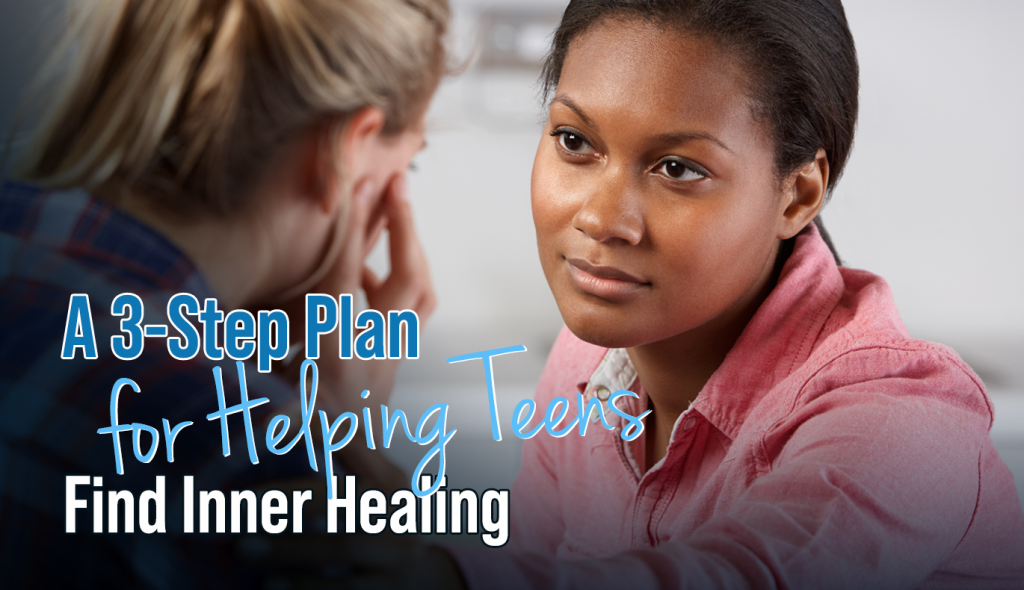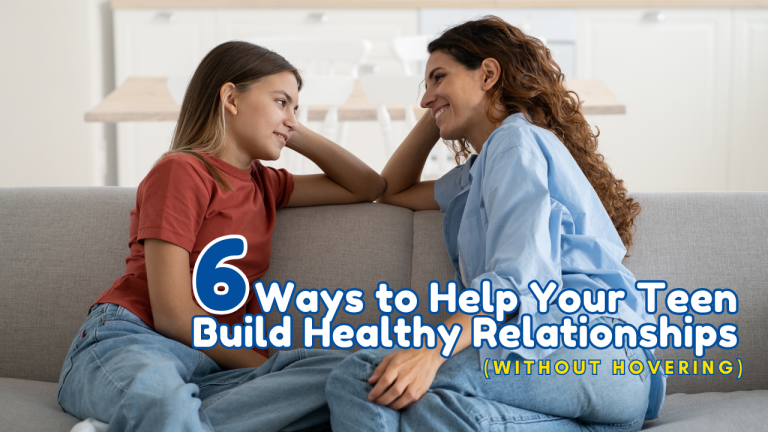Wounds from the past can be as crippling to our souls and spirits as debilitating diseases are to our physical bodies. The hurts are carried and experienced within the person and can sometimes cause an individual to shut down completely.
Studies show that wounds from the past are linked to many diseases, including heart disease, cancer, arthritis, high blood pressure, and many others. That makes sense since our three parts—spirit, soul, and body—are connected.
That’s why it is so vital for everyone—especially teens—to seek healing from the wounds they have suffered as children. It opens the door to a life of freedom, peace, and joy that is not possible without this experience.
At House of Hope, we take our teens through a process of inner healing, and we have seen great results! Here, we’re sharing tips from over 35 years of experience in helping hurting teens with this 3-step plan for helping teens find inner healing.
1. Confess the Desire for Help
Jesus is the Healer—spirit, soul, and body. He is ready and waiting to heal all who call upon His Name. But it begins with a choice.
Not everyone wants to pursue inner healing because it involves the painful process of looking those wounds right in the face and processing them. Many people want to bury them and not think about them. What ends up happening is they live a long life filled with misery, fear, insecurities, and anxiety.
When a hurting teen—or anyone else—will express the desire for help, that is when healing can begin.
Isaiah 61:1-3 says that Jesus came to heal the brokenhearted and bind up their wounds. He does this by taking those who are hurt to the place where the pain first began and helping them start the healing process. But it begins with a choice and a decision to let Jesus come and remove the walls blocking healing.
It may not be as difficult as you think to have a teen express a desire for help. It may take time and an outpouring of love and care before they want to be vulnerable to this delicate process, but it is worth the investment!
2. Look for the Source of the Wounds
Events in the past cause people to build walls around their hearts. It’s a way to protect themselves from being hurt further because they had no way to process the hurt when it occurred.
To understand what wounds need healing in a teen’s life, take the time to pray and ask the Holy Spirit to reveal the truth about the teen. You may ask the teen some of the following questions to help. Parents can ask themselves these questions, as well, to discover areas in their own lives that need healing:
- Who was the first person who loved you?
- Describe what you know about your birth and any special or unique situations about it.
- How did you feel when you were with your father? Your mother? Other family members or neighbors?
- Were you and your parents compatible in religion, or did your parents have different beliefs?
- Were your parents very controlling? Did you feel that they loved you?
- Were you neglected or not nurtured?
- Were you happy as a child? If not, when did you become unhappy? Did you like yourself as a child? When have you been happy?
- What is the first hurtful memory you have?
- How did or do you respond to hurts? (depression, anger, crying, working harder, acting out sexually, isolation, drugs, alcohol, etc.)
- What hurtful emotions have been surfacing lately?
- What would you like God to do for you?
3. Pray for the Healing of Memories
After you have talked to a teen about the sources of hurt, you can choose a time to lead them in a prayer to start the healing process. Sometimes a person has to experience a measure of freedom before inner healing. That is why we recommend a second person be present.
It is imperative to be sensitive to the leading of the Holy Spirit and the response of the teen in this process, which should look something like this:
- Begin with prayer, inviting the Holy Spirit to be the Counselor and search the teen’s heart and life for any hurts to be revealed and healed. REMEMBER: What God reveals, He heals.
- Wait on the Lord and expect the teen to hear God’s voice as a hurt comes to mind. (This could take fifteen to twenty minutes.)
- Have the teen share what they hear or see.
- Lead them in the healing of memories prayers, making sure they repeat after you. As you pray, gently touch the teen on the hand/shoulder, if appropriate, allowing them to get in touch with their emotions and know they are with someone safe.
PRAY: “I release and give this hurt, pain, anger, frustration, and fear to You, God.” Tell them to be honest about how they feel, acknowledge emotions, and describe feelings at the time of the hurt.
PRAY: “I release and forgive (names of people who caused hurt) for inflicting this and causing me pain.”
PRAY: “I ask You to forgive me, Lord, for hurting others out of my heart. I repent for my attitude and behavior toward others.”
PRAY: “I forgive myself for letting this hurt control me.”
- Ask the Spirit of God to remove the hurt as the negative emotions are released.
PRAY: “I ask You, Jesus, to come and heal the hurt.” Be still and allow the Holy Spirit time to minister His healing touch.
PRAY: “I receive Your healing.” Be careful not to make leading suggestions about what they are feeling or not feeling.
- After prayer, have the teen share whatever they have seen, heard, or felt.
- Repeat the process to allow the Holy Spirit to reveal any more hurts.
- Finally, pray for the healing to be sealed and for continued healing in the coming days.
When you put this 3-step plan for helping teens find inner healing into practice, you WILL see results. Remember, every person is unique and will have a different experience. Some healings take time, and the results will come over days, weeks, or even months. If you are willing and available to help a teen—and a family—find inner healing, you will be blessed to see the work of the Lord right before your eyes.
See Teens & Families in Crisis: 5 Keys to Heal by Sara Trollinger for more on this subject.
Related article: 12 Scriptures to Renew Your Hope








